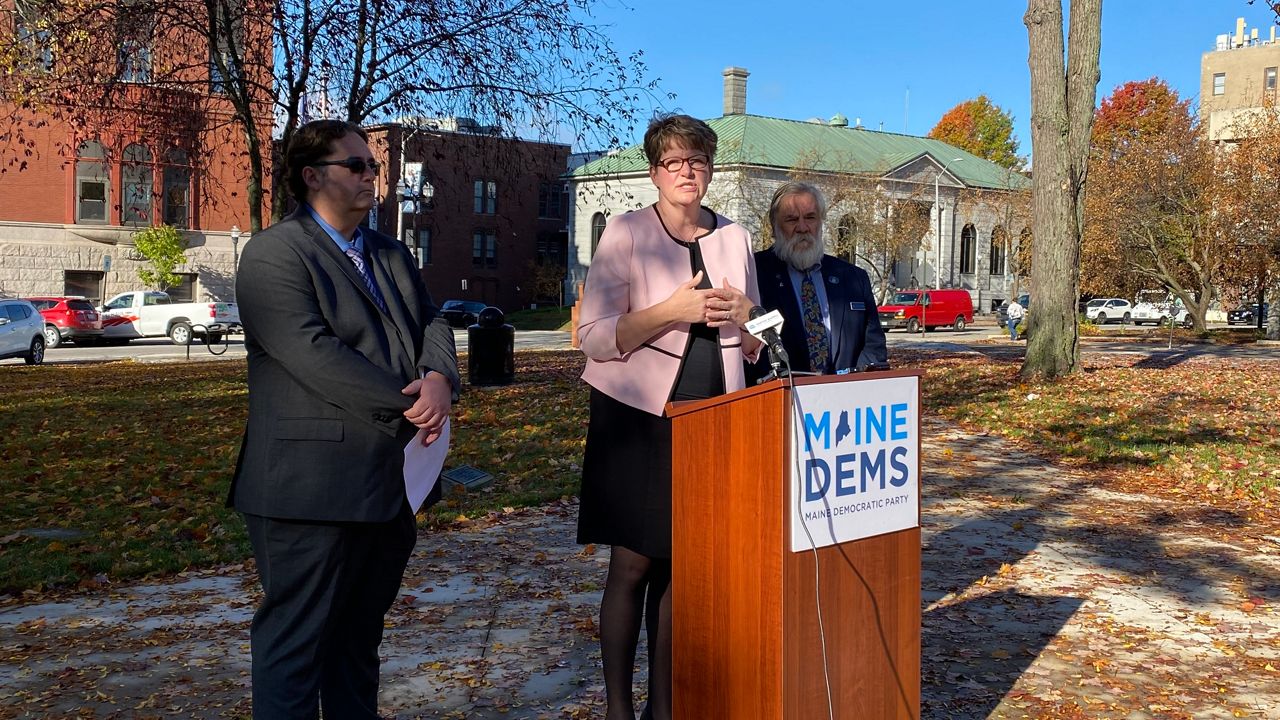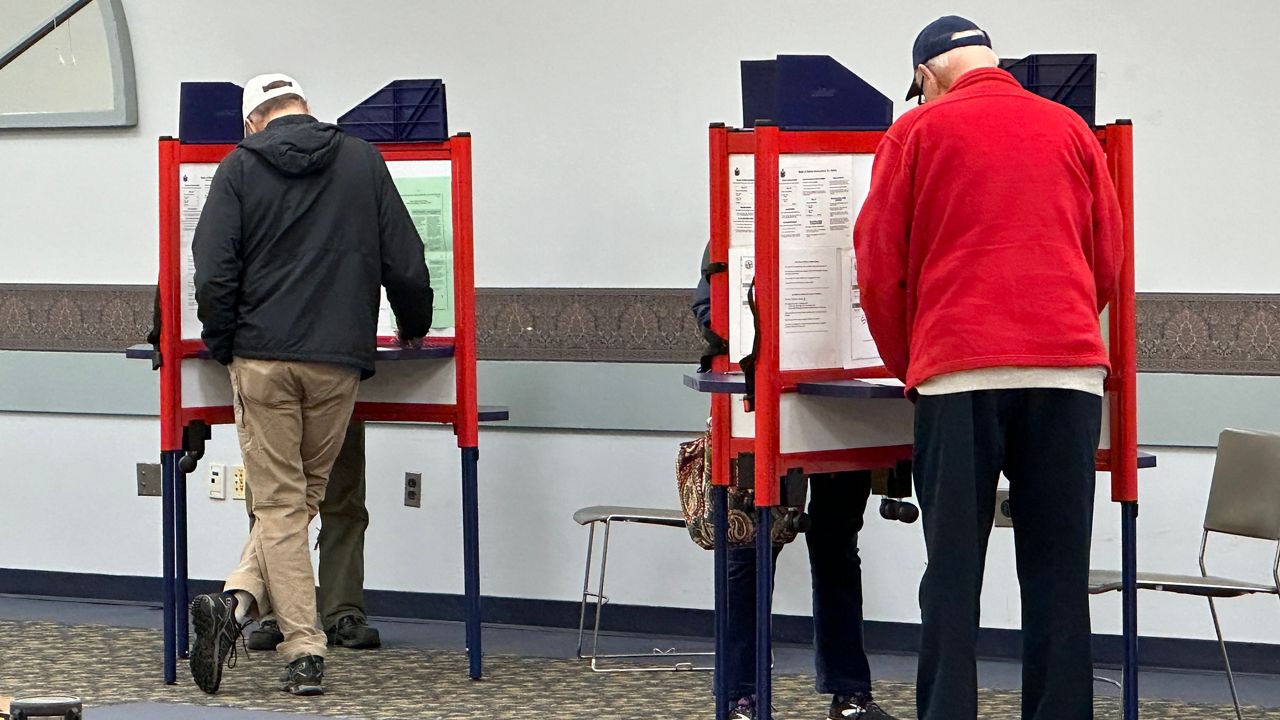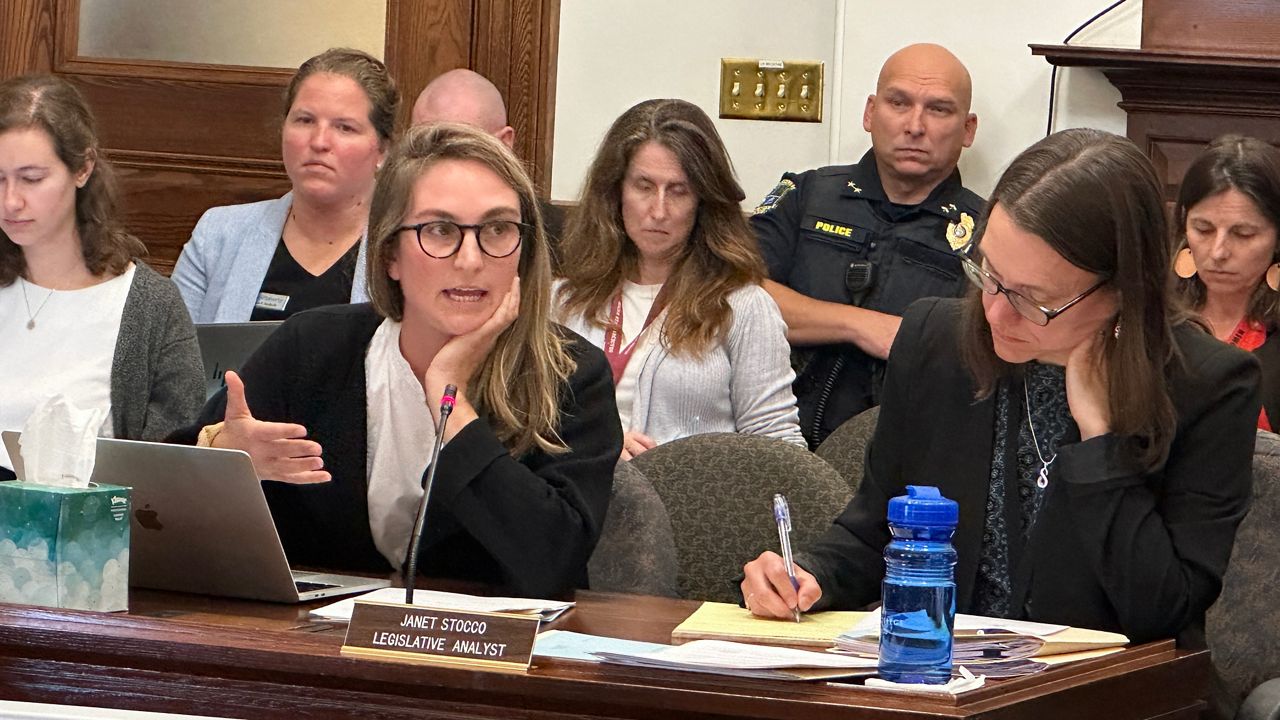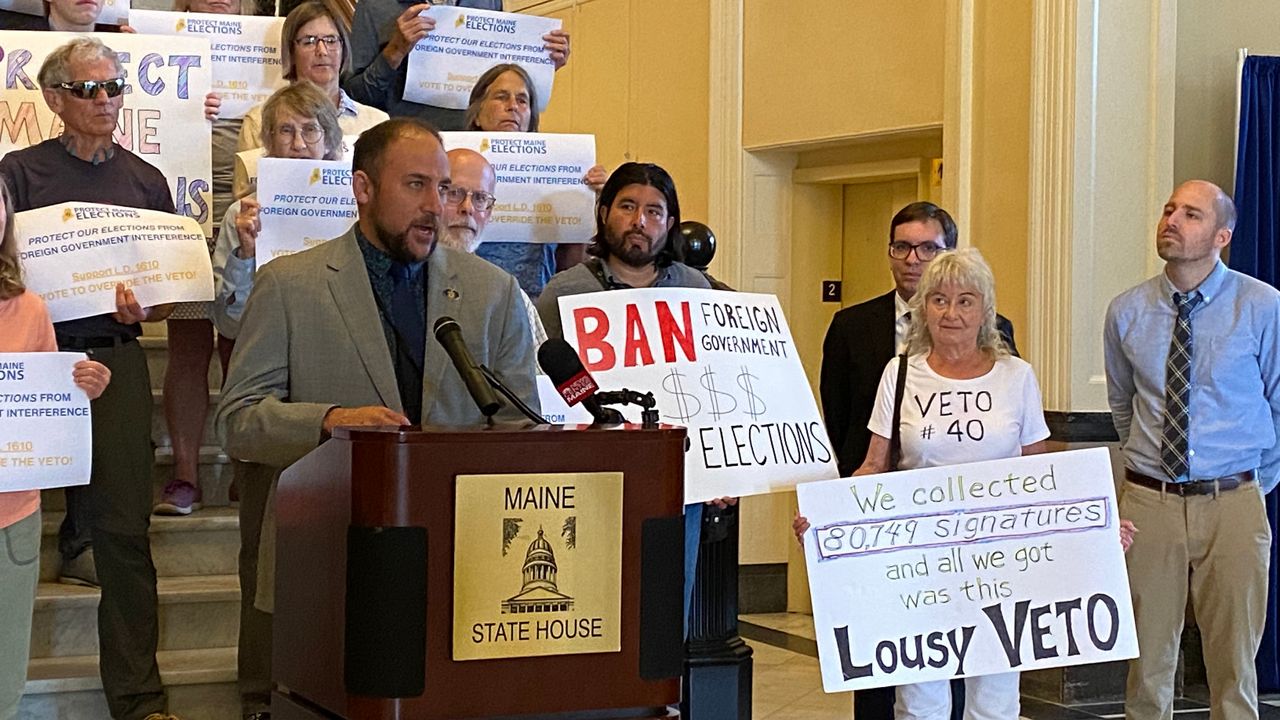Three current or former Democratic mayors said Wednesday that they are worried that state revenues shared with cities and towns will once again be cut if former Gov. Paul LePage is elected to a third term.
Those revenues pay for police, firefighters and other local services.
“When LePage was governor, he went to war on revenue sharing,” Bev Uhlenhake, former Brewer mayor and vice-chairwoman of the Maine Democratic Party, said. “While the state was already not meeting its full 5% when he took office, he actually reduced it to 2%.”
LePage, a former two-term Republican governor, faces Democratic Gov. Janet Mills and independent Sam Hunkler on Nov. 8.
Last week during an event in Bangor, LePage said he cut revenue sharing because he felt cities and towns were exempting too many properties from taxation. In a statement Wednesday, LePage spokesman Brent Littlefield said while mayor of Waterville, LePage managed the city’s budget without raising taxes.
“Paul LePage has a proven track record of lowering taxes and, as Mayor of Waterville, he cut property taxes without cutting a single service,” Littlefield said.
State law requires the state to share 5% of its revenues with cities and towns to help them pay for municipal services. But since 2006, during former Democratic Gov. John Baldacci’s time as governor, the state has transferred less than 5%, according to figures from the Maine Municipal Association.
In 2006, cities and towns received about $2.3 million less than required, a number that grew steadily under LePage, reaching $111 million in 2019, the year he left office.
Cities and towns continued to get less than 5% in the first two years of the Mills’ administration, falling short by nearly $46 million in 2021. But Mills has now increased the amount to a full 5%.
Kate Dufour, director of advocacy and communications for the municipal association, said political leaders should be talking about increasing the amount that gets shared with cities and towns.
She said more and more is demanded of municipalities, including “solid waste management, climate change, roads, cemeteries, public safety.”
“Each year, municipal governments are asked to do more with less,” she said. “Nothing is ever removed from the ‘to-do’ list.”
Maine Republican Party Chairwoman Dr. Demi Kouzounas criticized the mayors for participating in a “partisan press conference” organized by the Maine Democratic Party. She said while LePage lowered taxes as mayor, Mills closed down businesses and schools during the COVID-19 pandemic.
“And, of course, Janet Mills ignored Maine’s municipalities and property taxpayers when she unilaterally closed down our businesses and schools,” Kouzounas said.
The LePage-era reductions left cities and towns to decide whether to cut services, raise property taxes or dip into their reserves, former Gardiner Mayor Thom Harnett said.
Harnett, a Democratic state lawmaker, said Gardiner did a little of each to cover their local city budget. The city lost $3.2 million in funds because of cuts to revenue sharing over a six-year period, he said.
Harnett said that left several city residents no choice but to ask the city for a tax abatement.
“There’s nothing worse than having to come in front of your friends and neighbors and ask for your property taxes to be abated,” he said. “I saw too many people come before us shaking, scared that they were going to lose their family home.”






)

